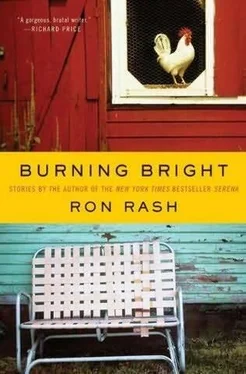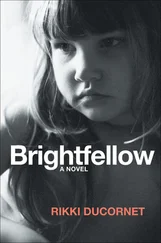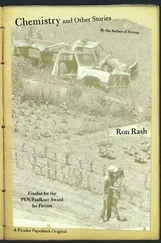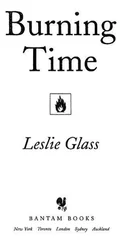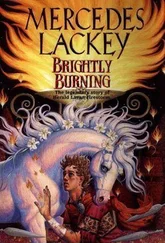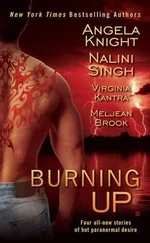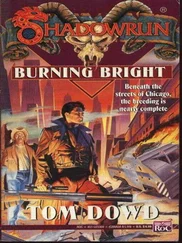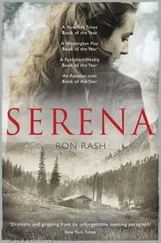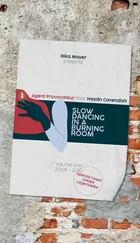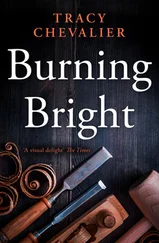Lily sat on the porch, the day’s plowing done and her year-old child asleep in his crib. In her hands, the long steel needles clicked together and spread apart in a rhythmic sparring as yarn slowly unspooled from the deep pocket of her gingham dress, became part of the coverlet draped over her knees. Except for the occasional glance down the valley, Lily kept her eyes closed. She inhaled the aroma of fresh-turned earth and dogwood blossoms. She listened to the bees humming around their box. Like the fluttering she’d begun to feel in her stomach, all bespoke the return of life after a hard winter. Lily thought again of the Washington newspaper Ethan had brought with him when he’d come back from Tennessee on his Christmas furlough, how it said the war would be over by summer. Ethan had thought even sooner, claiming soon as the roads were passable Grant would take Richmond and it would be done. Good as over now, he’d told her, but Ethan had still slept in the root cellar every night of the furlough and stayed inside during the day, his haversack and rifle by the back door, because Confederates came up the valley from Boone looking for Lincolnites like Ethan.
She felt the afternoon light on her face, soothing as the hum of the bees. It was good to finally be sitting, only her hands working, the child she’d set in the shade as she’d plowed now nursed and asleep. After a few more minutes, Lily allowed her hands to rest as well, laying the foot-long needles lengthways on her lap. Reason enough to be tired, she figured, a day breaking ground with a bull-tongue plow and draft horse. Soon enough the young one would wake and she’d have to suckle him again, then fix herself something to eat as well. After that she’d need to feed the chickens and hide the horse in the woods above the spring. Lily felt the flutter again deep in her belly and knew it was another reason for her tiredness. She laid a hand on her stomach and felt the slight curve. She counted the months since Ethan’s furlough and figured she’d be rounding the homespun of her dress in another month.
Lily looked down the valley to where the old Boone toll road followed Middlefork Creek. Her eyes closed once more as she mulled over names for the coming child, thinking about how her own birthday was also in September and that by then Ethan would be home for good and they’d be a family again, the both of them young enough not to be broken by the hardships of the last two years. Lily made a picture in her mind of her and Ethan and the young ones all together, the crops she’d planted ripe and proud in the field, the apple tree’s branches sagging with fruit.
When she opened her eyes, the Confederate was in the yard. He must have figured she’d be watching the road because he’d come down Goshen Mountain instead, emerging from a thick stand of birch trees he’d followed down the creek. It was too late to hide the horse and gather the chickens into the root cellar, too late to go get the butcher knife and conceal it in her dress pocket, so Lily just watched him approach, a musket in his right hand and a tote sack in the left. He wore a threadbare butternut jacket and a cap. A strip of cowhide held up a pair of ragged wool trousers. Only the boots looked new. Lily knew the man those boots had belonged to, and she knew the hickory tree where they’d left the rest of him dangling, not only a rope around his neck but also a cedar shingle with the word Lincolnite burned into the wood.
The Confederate grinned as he stepped into the yard. He raised a finger and thumb to the cap, but his eyes were on the chickens scratching for worms behind the barn, the draft horse in the pasture. He looked to be about forty, though in these times people often looked older than they were, even children. The Confederate wore his cap brim tilted high, his face tanned to the hue of cured tobacco. Not the way a farmer would wear a hat or cap. The gaunt face and loose-fitting trousers made clear what the tote sack was for. Lily hoped a couple of chickens were enough for him, but the boots did not reassure her of that.
“Afternoon,” he said, letting his gaze settle on Lily briefly before looking westward toward Grandfather Mountain. “Looks to be some rain coming, maybe by full dark.”
“Take what chickens you want,” Lily said. “I’ll help you catch them.”
“I plan on that,” he said.
The man raised his left forearm and wiped sweat off his brow, the tote sack briefly covering his face. As he lowered his arm, his grin had been replaced with a seeming sobriety.
“But it’s also my sworn duty to requisition that draft horse for the cause.”
“For the cause,” Lily said, meeting his eyes, “like them boots you’re wearing.”
The Confederate set a boot onto the porch step as though to better examine it.
“These boots wasn’t requisitioned. Traded my best piece of rope for them, but I’m of a mind you already know that.” He raised his eyes and looked at Lily. “That neighbor of yours wasn’t as careful on his furlough as your husband.”
Lily studied the man’s face, a familiarity behind the scraggly beard and the hard unflinching gaze. She thought back to the time a man or woman from up here could go into Boone. A time when disagreement over what politicians did down in Raleigh would be settled in this county with, at worst, clenched fists.
“You used to work at Old Man Mast’s store, didn’t you?” Lily said.
“I did,” the Confederate said.
“My daddy used to trade with you. One time when I was with him you give me and my sister a peppermint.”
The man’s eyes didn’t soften, but something in his face seemed to let go a little, just for a moment.
“Old Mast didn’t like me doing that, but it was a small enough thing to do for the chaps.”
For a few moments he didn’t say anything else, maybe thinking back to that time, maybe not.
“Your name was Mr. Vaughn,” Lily said. “I remember that now.”
The Confederate nodded.
“It still is,” he said, “my name being Vaughn, I mean.” He paused. “But that don’t change nothing in the here and now, though, does it?”
“No,” Lily replied. “I guess it don’t.”
“So I’ll be taking the horse,” Vaughn said, “lest you got something to barter for it, maybe some of that Yankee money they pay your man with over in Tennessee? We might could make us a trade for some of that.”
“There ain’t no money here,” Lily said, telling the truth because what money they had she’d sewn in Ethan’s coat lining. Safer there than anywhere on the farm, she’d told Ethan before he left, but he’d agreed only after she’d also sewn his name and where to send his body on the coat’s side pocket. Ethan’s older brother had done the same, the two of them vowing to get the other’s coat home if not the body.
“I guess I better get to it then,” Vaughn said, “try to beat this rain back to Boone.”
He turned from her, whistling “Dixie” as he walked toward the pasture, almost to the split-rail fence when Lily told him she had something to trade for the horse.
“What would that be?” Vaughn asked.
Lily lifted the ball of thread off her lap and placed it on the porch’s puncheon floor, then set the half-finished coverlet on the floor as well. As she got up from the chair, her hands smoothed the gingham around her hips. Lily stepped to the porch edge and freed the braid so her blonde hair fell loose on her neck and shoulders.
“You know my meaning,” she said.
Vaughn stepped onto the porch, not speaking as he did so. To look her over, Lily knew. She sucked in her stomach slightly to conceal her condition, though his knowing she was with child might make it better for him. A man could think that way in these times, she thought. Lily watched as Vaughn silently mulled over his choices, including the choice he’d surely come to by now that he could just as easily have her and the horse both.
Читать дальше
